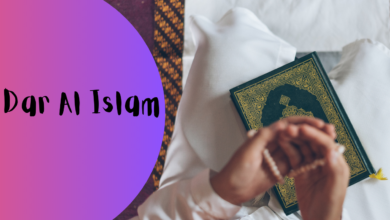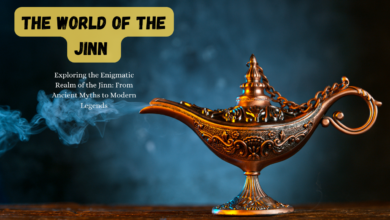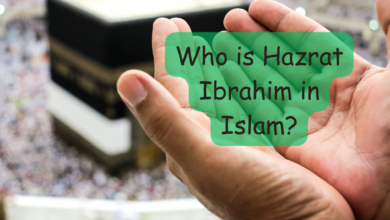What does Deen mean in Islam ?

The Essence of “Deen” in Islam: Beyond Religion, a Way of Life
Islam is much more than a mere religion; it’s a complete way of life that encompasses every aspect of an individual’s existence. Central to this holistic approach is the concept of “Deen.” While often translated as “religion” in English, “Deen” carries a far more profound and multifaceted meaning in the Islamic context. It encapsulates spirituality, morality, law, and a sense of purpose that extends beyond rituals and beliefs.
The Linguistic Significance:
The term “Deen” originates from the Arabic word دِين (pronounced as “deen”), which stems from the root word دين (pronounced as “dayn”). This root word embodies a range of meanings, including submission, obedience, judgment, and debt. Collectively, these connotations give rise to the comprehensive concept of Deen in Islam.
A Way of Life:
Deen in Islam extends far beyond the conventional understanding of religion. It encompasses the entire spectrum of human life, guiding not only spiritual practices but also ethical behavior, social interactions, economic dealings, and even matters of governance. It provides a framework that guides Muslims in navigating the complexities of life with a strong moral compass.
Spiritual Fulfillment:
At its core, Deen calls for submission to the will of Allah (God). This submission is not limited to ritual prayers or fasting, but it also involves cultivating a deep connection with the Divine through acts of worship, self-reflection, and constant mindfulness of God’s presence. Deen encourages believers to seek inner peace, humility, and a sense of purpose by aligning their lives with the teachings of the Quran and the Sunnah (the way of the Prophet Muhammad).
Moral Compass:
Deen serves as a moral compass that directs Muslims towards virtuous behavior and ethical conduct. It provides guidelines for honesty, integrity, compassion, and justice. Muslims are encouraged to exhibit kindness towards others, fulfill their responsibilities, and stand up against oppression and injustice. The principles of Deen guide believers to be considerate, honest, and empathetic in their interactions with fellow humans and the environment.
Legal Framework:
Islamic law, or Sharia, is an integral aspect of Deen. It offers a comprehensive legal framework that covers a wide range of issues, from family matters and business transactions to criminal justice. Sharia aims to establish justice, equity, and harmony within society, ensuring that both individual and communal rights are upheld. However, it’s important to note that interpretations and applications of Sharia can vary across different cultures and traditions within the Muslim world.
Purpose and Direction:
Deen provides believers with a sense of purpose that extends beyond the materialistic pursuits of life. By adhering to the teachings of Islam, Muslims find meaning in their actions, whether they are engaging in worship, raising a family, pursuing a career, or contributing to society. This sense of purpose helps individuals overcome challenges, navigate uncertainties, and remain steadfast in their commitment to living a life in accordance with their faith.
In conclusion, the concept of Deen in Islam transcends the conventional understanding of religion. It encompasses spirituality, ethics, law, and purpose, guiding Muslims in every facet of their lives. Deen is not just a set of rituals and beliefs; it’s a comprehensive framework that fosters a deep connection with the Divine, molds moral character, provides a legal foundation, and imbues life with profound meaning. Embracing Deen means integrating faith into one’s actions, thoughts, and intentions, thereby enriching both the individual’s life and the society in which they live.
What does “Deen” mean in Islam?
“Deen” is an Arabic term often translated as “religion” or “way of life” in English. In Islam, it encompasses the comprehensive system of beliefs, practices, ethics, and values that guide the lives of Muslims.
Is “Deen” only about rituals and prayers?
No, “Deen” in Islam goes beyond rituals and prayers. It includes every aspect of a Muslim’s life, from worship and morality to social interactions, business ethics, and personal conduct.
How does “Deen” differ from “Dunya”?
“Dunya” refers to the temporal world, while “Deen” refers to the spiritual and moral dimension of life. “Deen” guides how Muslims navigate the world while striving to earn rewards in the Hereafter.
Is “Deen” limited to just beliefs?
No, “Deen” encompasses both beliefs and actions. It includes having faith in Allah, following the teachings of Prophet Muhammad, and practicing the Five Pillars of Islam, among other acts of worship.
Can “Deen” be separated from daily life activities?
In Islam, “Deen” is inseparable from daily life. Muslims are encouraged to integrate their faith into every facet of their existence, making ethical and moral decisions aligned with Islamic teachings.
Are there different aspects of “Deen” in Islam?
Yes, Islam covers various aspects of life, including “Aqeedah” (creed), “Ibadah” (worship), “Akhlaq” (morality), “Mu’amalat” (transactions), “Muasharat” (social interactions), and “Akhira” (Hereafter).





